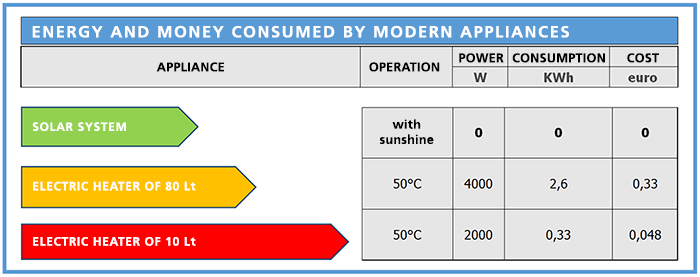Green energy is the form of exploitable energy which comes from various physical processes such as wind, water circulation and others, which is produced without the co-production of dangerous substances or substances harmful to humans or the environment.
The term “green” refers to two main features:
- For their exploitation, no active intervention such as extraction, pumping, combustion is required, as with the energy sources used so far, but only the exploitation of the existing energy flow in nature.
- These are “clean” forms of energy, very environmentally friendly, which do not release hydrocarbons, carbon dioxide or toxic and radioactive waste.
Alternatives to traditional sources of energy (eg oil or coal), such as solar and wind, are generally considered to be “renewable sources“.
The interest in these forms of energy was created in the 1970s, mainly as a result of the successive oil crises of the time, as well as the deterioration of the environment and the quality of life from the use of classical energy sources.
The cost of applications for this form of energy has been falling over the past twenty years so that they can now compete with traditional energy sources such as coal and nuclear.
Our country, geographically and geologically, has significant advantages over the exploitation of RES.
Advantages
- They are very environmentally friendly, with virtually zero residuals and waste.
- They will never be exhausted, unlike fossil fuels.
- The equipment is simple to manufacture and maintain and has a long life span
- Solar energy is clean, inexhaustible, mild and renewable. Solar radiation is not controlled by anyone and is an inexhaustible domestic energy resource that provides independence, predictability and security in power supply
Benefits
- Saving money (compared to traditional forms of energy)
- Energy saving
- Environmental Protection (Large volumes of environmental and public health pollutants are prevented)
- Climate change (Energy consumption from fossil fuels and consequently carbon dioxide (CO2) emissions are avoided. A typical solar thermal system produces 840-1,080 kilowatt-hours per year in Greece and avoids the release of 1,200 kilos of CO2 per year, absorbing 1,5 acres of forest)

** The above information is on the official website of the Greek Public Power Supply Corporation.
Applications
- Sanitary Hot water (winter-summer)
- Space Heating and cooling
- Swimming pool heating
